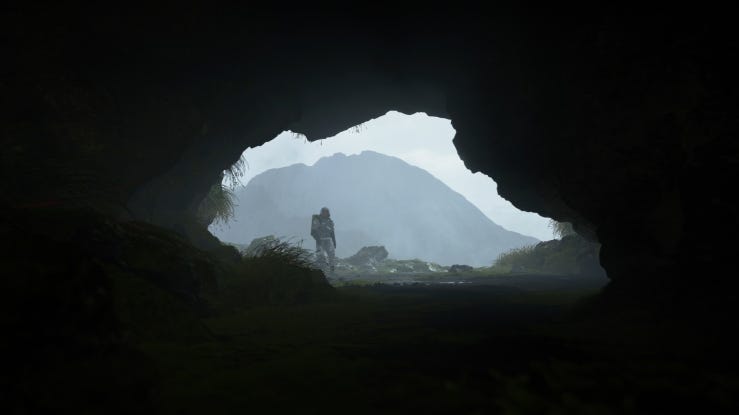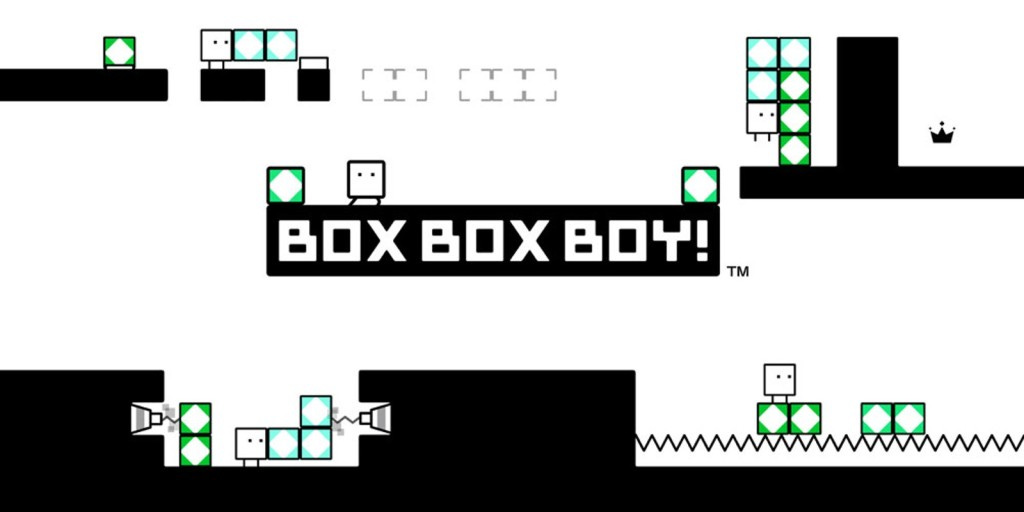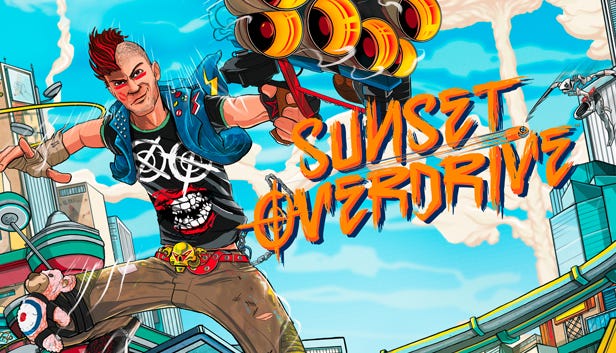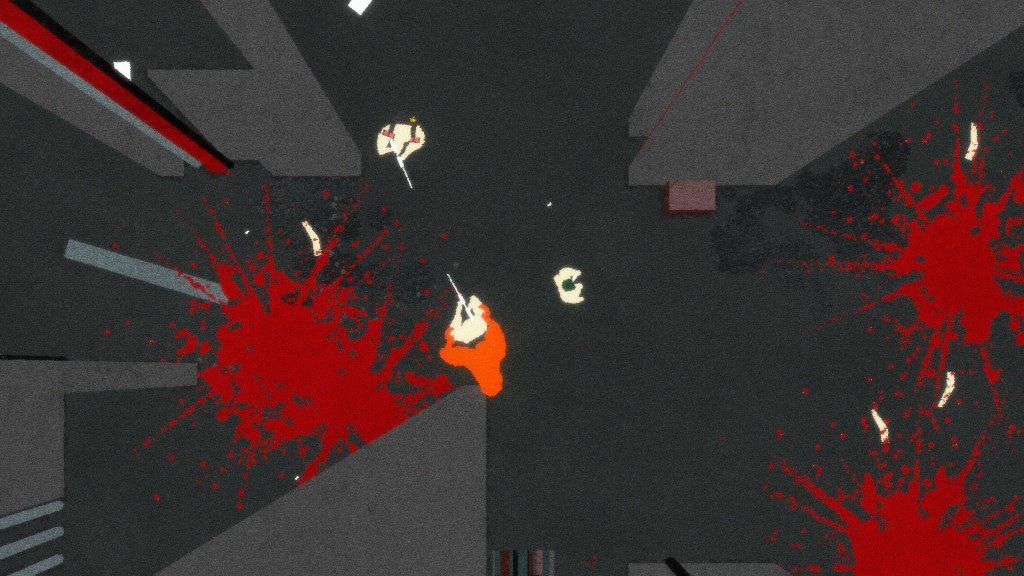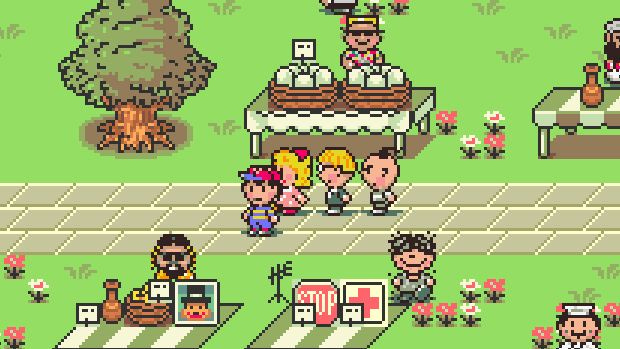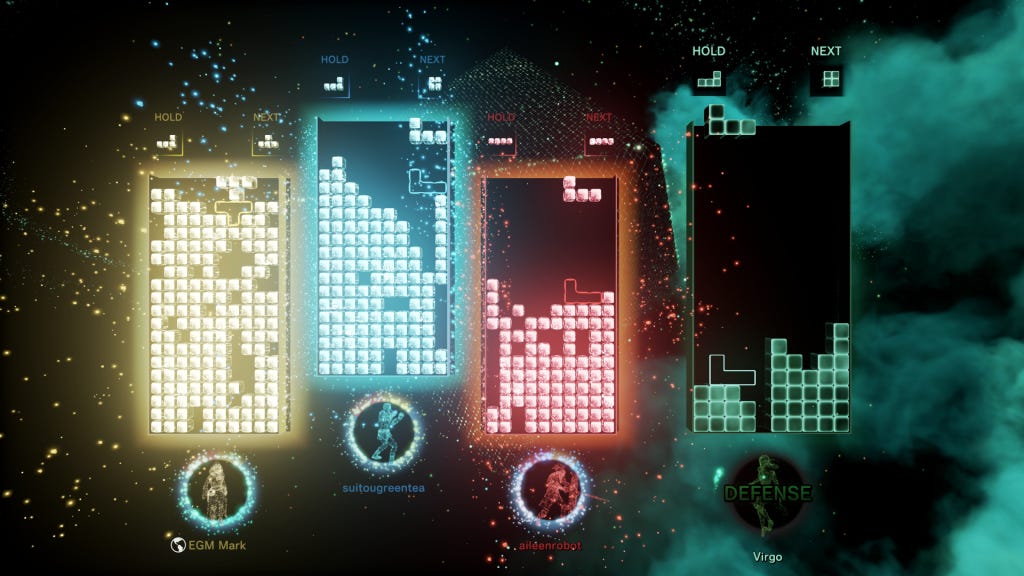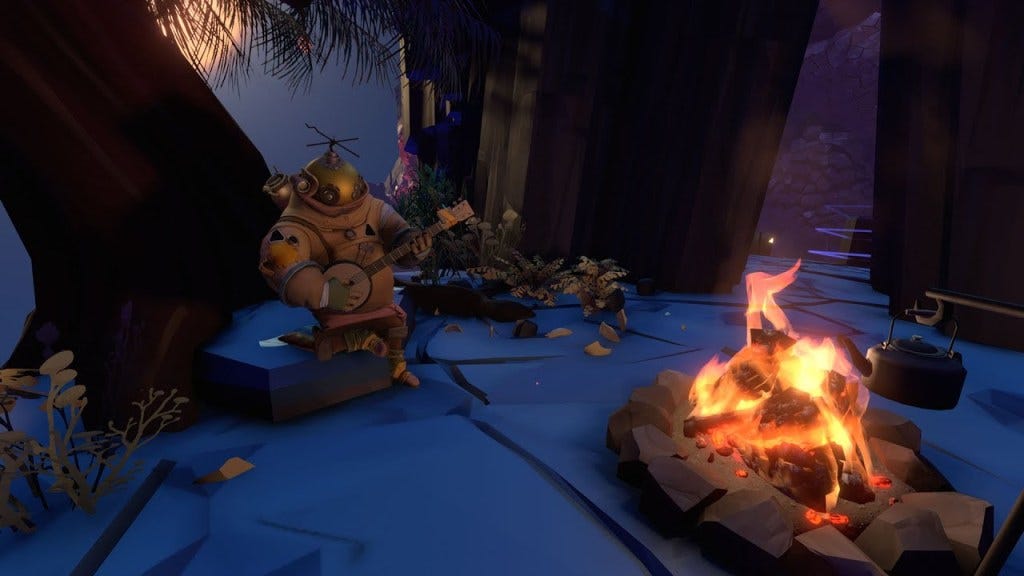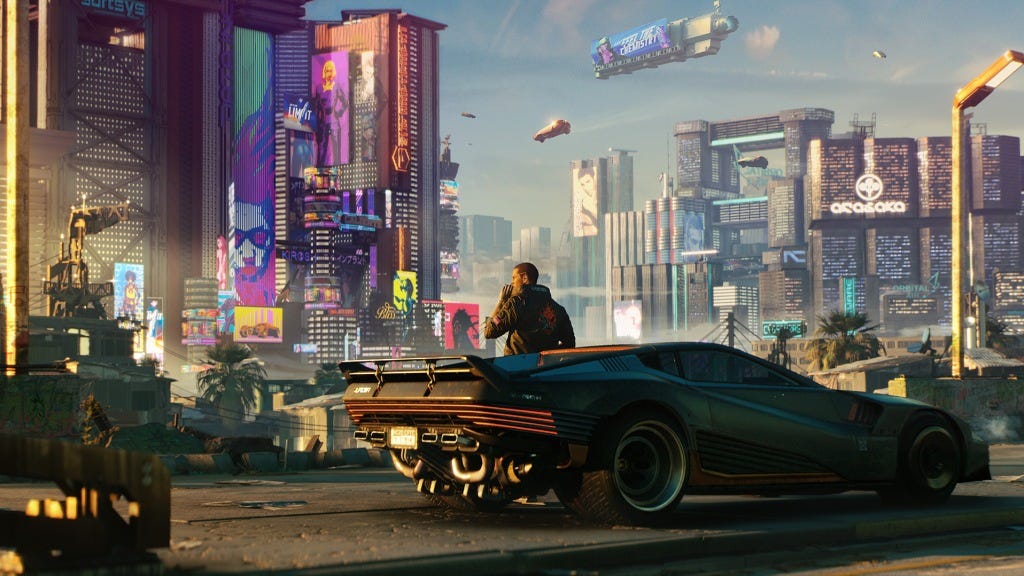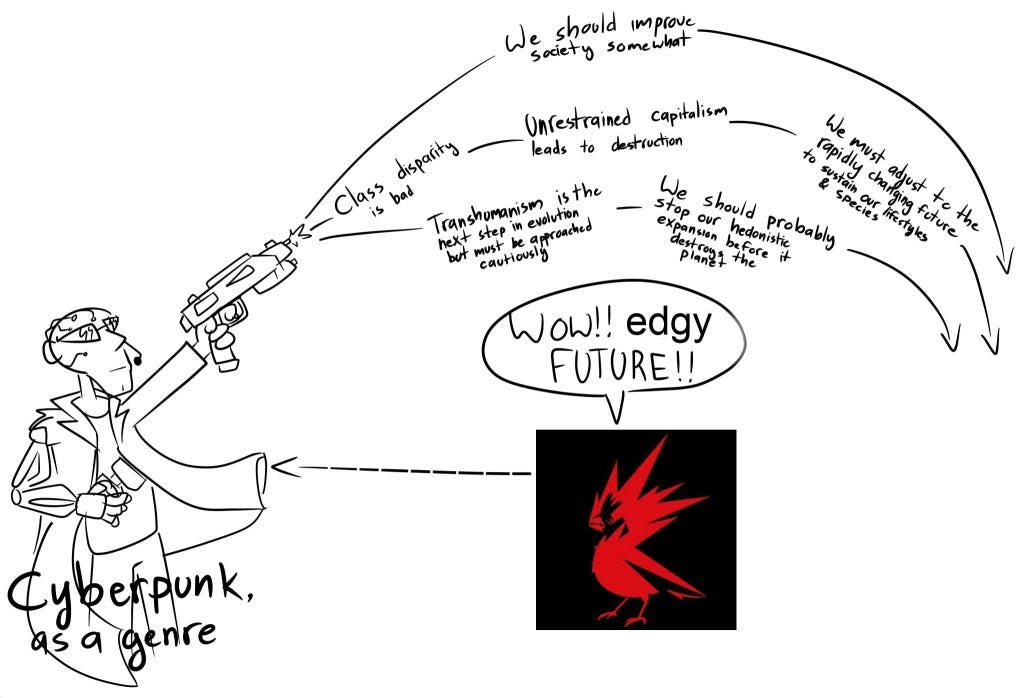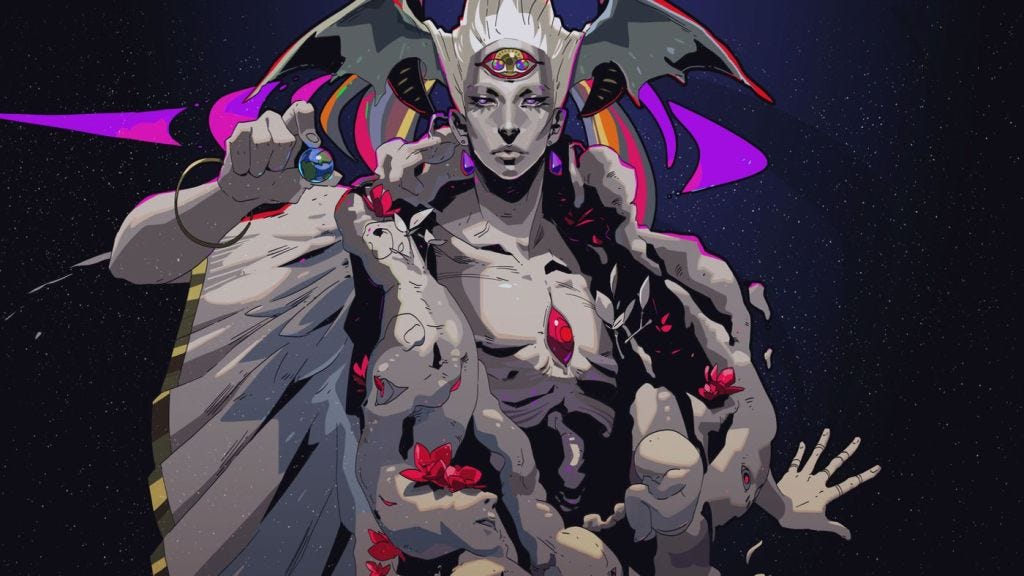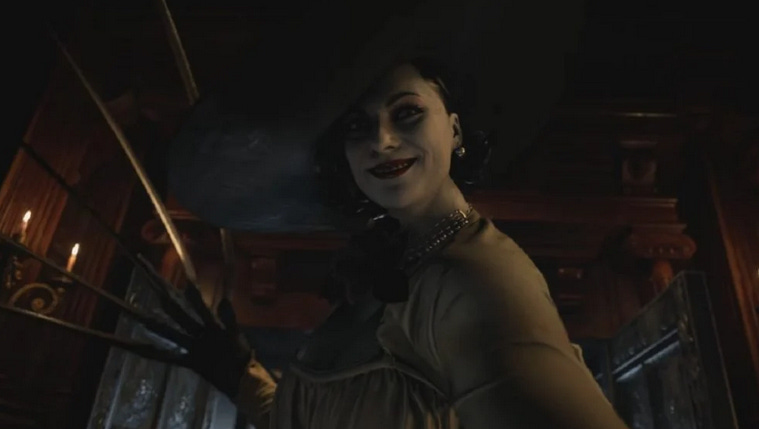The Best Games I Played In 2020
So, we're finally done with that hell year, and while the new year is mostly significant for bookkeeping purposes rather than any tangible effect on the world, it is a good time to sit back and reflect on the year before, which in the context of this blog, I'm going to do by reflecting on the games that I played while I was stuck at home.
Because I'm broken and my brain is wrong, I have a hard time getting myself to relax and enjoy the things I do unless I can mentally categorize it as some kind of trackable metric (although travel tends to avoid this fate, not that I was doing much traveling in 2020). As a result, every year I set myself goals for a certain number of games, movies, and books to finish before New Year's Eve, and this year I accomplished a first of actually meeting one of those goals: seeing credits roll on 30 video games new and old. I managed to just barely make this one, seeing the credits roll on Helltaker (a game that does not make this list, but is delightful, takes about an hour, and is free, so there's the shout out for that) and, in celebration, I'd like to take a bit of time to talk about the best stuff I played and the really interesting design that I was able to see.
Death Stranding
I included Death Stranding in my Best Games of the Decade list last year, but I technically didn't reach the game's incredible ending until January of this year, and my opinion, as I predicted, still hasn't changed: Death Stranding is one of the best video games ever made.
There are a lot of amazing things about Death Stranding, but for me the thing I find myself thinking about the most recently is the way Death Stranding really presents a new conceptualization of an open world as a design. In so many games, an open world is just a receptacle of stuff to do, a buffet that players must slog through in order to get to the content they want, hoping that players will find the act of wandering enjoyable enough unto itself that the game is justified in not simply just letting players launch any particular activity they want from a menu instead. Even games which might be thought to buck this trend don't really, they just spend a bit more care trying to make that wandering a bit more enjoyable, like the swinging in Marvel's Spider-Man, which an enjoyable enough process to make the traversal in that game interesting. Fundamentally, though, Spider-Man and Breath of the Wild and many of these other games still think about open worlds in fundamentally the same way: it's still a buffet of content that players engage with primarily for the content that lies within.
Death Stranding completely bucks that trend. There is no content or secrets or items or anything to be discovered in the post-Death Stranding America presented by this game, no treasure chests or secret bosses to uncover. Instead, Death Stranding's mechanical weight is focused on two completely distinct sources of fun: the fun of learning to navigate and traverse a fundamentally hostile landscape, and the fun of slowly engineering and building upon this landscape to make it less fundamentally hostile. The destination in Death Stranding is de-emphasized nearly to the point of irrelevance, it is the act of journeying that is the complete focus, and I hope we see more games with this mindset pick up the baton where Kojima and his team left it.
BoxBoxBoy
Why don't more people talk about BoxBoxBoy?! This series is so goddamn good it boggles my mind how infrequently it's spoken of.
The BoxBoy games are about the eponymous little square with eyes traversing a variety of puzzles using his ability to generate boxes out of his body, a setup that is so blisteringly simple but gives the games so much room to create fun and interesting puzzles.
There is seriously so much creative space that BoxBoxBoy! explores. You'll be creating your own platforms to traverse dangerous spike pits, building a box shield out of your own body to protect you from lasers, creating hooks and snakes of boxes to latch onto distant ledges or slide through narrow passages. BoxBoxBoy! is pure fun, and an excellent reminder of a fundamental of puzzle game design: when you start with a simple core to your game and build from it, you can easily find yourself creating a varied and interesting set of puzzles to fill a game (or 3!) with while still ensuring your player is easily ramped up into the difficulty.
Sunset Overdrive
A buddy of mine has been trying to get me to play Sunset Overdrive for quite a while now, and this year I finally broke down and downloaded it after getting Xbox Game Pass and finding it sitting there, tantalizingly free. Christian, you were right, this game is fucking phenomenal in all regards.
Sunset Overdrive is an open world game in the way that I mentioned above, a big open buffet of stuff to do all crammed into a big open world, but the thing that makes it so pleasant is how absolutely wonderful the movement is. Dubbed "bump and grind" by the developers, the unique movement systems in this game require you to use jumps timed perfectly after landing (bumps) and sliding around the many rails available in the world (grinds) to maintain your momentum lest you be pretty rapidly overwhelmed by the game's hordes of enemies, a system that manages to require a lot of active thought and planning moment-to-moment while also maintaining such a breakneck speed that my nearest point of comparison is probably Titanfall of all things. Like Titanfall, when you're really in that zen, where the perfect next move to make is just natural, Sunset Overdrive has this exhilarating sense of pace and movement that weaves through every aspect of the game, a feat that not even Insomniac's later Spider-Man games can match.
That part about "weaving through every aspect" is really the clincher there, and why I mention this game as being fantastic despite having just ragged on this style of open world game, like, 800 words ago. So many open world games view traversal and encounters as two separate things, oil and water, and never the twain shall mix. Marvel's Spider-Man is especially egregious in this regard, with the high-flying web-slinging that makes traversal so fun being almost entirely absent from the actual encounters and missions in the game, which are instead a sort of bootleg-Arkham Asylum. In Sunset Overdrive, you are always moving. That bump and grind system is integral to every moment of the game, and thus the game manages to maintain that sense of momentum through exploration and encounter design alike.
Ape Out
Maybe my biggest surprise this year as far as games go is how absolutely incredible Ape Out is. In a year where I moved across the country, in part to be in a city that actually had a living jazz scene, only for said scene to screech to a halt due to the Current Unpleasantness, Ape Out is as close as I could come to the distilled feeling of live jazz.
The single word that defines every aspect of Ape Out is "improvisation". The game is constant and frantic, the massive walls which extend out into the sky block your view of everything but the immediate future, and a constantly-changing campaign constantly throws new things into the mix for you to figure out. Many games, notably the entire roguelike genre, ask the player to improvise on the fly, but I think the key distinction is that those games still ask you to make a plan with incomplete information, to think about things like upgrade choices and progression paths and what choices you should make down the line with the random sequence of events that have led you to that point.
Ape Out doesn't want you to do any of that shit. You're not picking a build or choosing whether or not you want to go for the secret level or not, you're a goddamn gorilla. Your only inputs in the game, other than moving, are to punch, or to grab and throw things, both things you do very hard because you are a fucking gorilla, and sitting around to strategize for too long gets you riddled with bullets because you are an orange gorilla and there isn't much room for nuance. Every aspect of the game, including the incredible procedural jazz drum soundtrack which I have criminally failed to mention up to this point despite being the best thing in the game, screams at you with a single, beautiful thought: "DON'T THINK, APE OUT".
Earthbound
The legacy of Mother 2, known as Earthbound here in Freedomland, stretches pretty far, serving as a core source of inspiration for what one might call the sort of modern new-wave of indie RPGs, including off!, Lisa: The Painful, and Undertale. It's one of those games that game developers love, and frankly, it completely deserves it, it's one of the best RPGs ever made.
Earthbound is wonderful in a combination of its mundanity, its weirdness, and a certain amount of childlike simplicity. Earthbound feels like an adventure actual kids would have, not in the way kids in movies and TV shows have adventures where they end up going on some grand quest and gain magical powers and go to a fantasy world or whatever, but almost, like, Stand By Me, almost? A series of mundane events which, through the lens of a kid, take on near-mythical significance simply due to the novelty the world has to you at the time. Every abandoned or half-finished house is filled with ghosts in the mind of a kid, every woods contains some sort of secret to be discovered, every corner hiding some fantastic other world if you just know the right way to step around it.
The game perfectly captures that feeling even in me as an adult by imagining a world that is as full of wonder as kids might imagine, and acknowledges that sometimes the imaginary world of kids is weird and doesn't make a lot of sense. Maybe behind that waterfall really is a secret lab run by a big puddle of puke. Maybe finding the right bit of the wall in this diner will let you enter a weird opposite world, one where you'll be assaulted by modern art. Maybe if you figure out just the right way to run really fast down the street, you can teleport.
The whole game works on this sort of rule, that kid logic is real and triumphs over all. Sometimes, there's a big pencil eraser blocking your path, but it's okay, because you have an Eraser Eraser to get rid of it, an idea that taps directly into the same vein of surrealist kid logic that "shield-proof bullet-proof shields" came from on the schoolyard. And it utilizes that logic, that weird surreal energy imbued into a fairly mundane world, to create a game that manages to make a regular suburban pastiche more fantastic and incredible than any fantasy world in any game.
Also, this has nothing to do with anything, but I wanna mention it anyways: the creator of the series, Shigesato Itoi, now runs a lifestyle company called Hobonichi that, among other things, makes these really nice day planners called the Hobonichi Techo. I've been using the Techo as my day planner for 4 or 5 years now and it's really, really good, I highly recommend picking one up for the new year.
Tetris Effect Connected & Tetris Battle Gaiden
Can I tell you a secret? I fucking love Tetris.
Every few months or so, I'll absentmindedly pick up Tetris in one of its various forms throughout the years, needing a way to fill 20 minutes or whatever, and inevitably sink multiple hours into Tetris, which eventually mutates into a sort of Tetris fugue state in which I'm playing the game constantly, in every gap of free time in the day I have, until when I see my eyes, this isn't an exaggeration, I reflexively imagine Tetris.
I did that this year too, as it turns out. Two times, corresponding with the two different flavors of Tetris that captured me this year. Each game its own fun little twist on the formula.
Tetris Effect Connected is the Xbox Series....es release of 2019's Tetris Effect, featuring, as the title might imply, multiplayer, and it's addictive. The twist compared to normal Tetris is the addition of Tetris Effect's Zone Meter, a bar that's filled by clearing lines. When you trigger Zone, the meter slowly empties, and as it does so, lines sent by your enemy are paused, and all lines you clear are queued up into one colossal batch, which is sent flying all at once when the Zone runs out.
This ends up really easily encouraging players towards a strategy that's common among high-level Tetris players, which is filling up your board with a massive, 15+ line setup, before raining it down upon your opponent with a righteous fury. Zone makes that strategy a bit more accessible to worse players (like me), allowing them to pause any incoming attacks and take the time they need to land their combo. Thanks to the game's excellent sound design, you can always tell when your opponent enters Zone, and despite not being able to hear or see the other player, it's incredible how well you can see a sense of panic overtake someone just from the way they move their Tetris pieces when they hear you Zone, look over, and see the board-sized combo you're about to rain down upon them.
Tetris Battle Gaiden is the oldest and probably most obscure of the Tetrises I indulged in this year, mostly because it never formally came out in the west. Luckily, I was able to play it through completely legal means I definitely didn't download a ROM and play it on a Raspberry Pi no sir.
Battle Gaiden has a few really interesting additions that make it maybe one of the most competitive Tetris variants I've ever played. The biggest is the introduction of Magic, a resource you get for clearing a line on your board with a specific special tile in it. You can stock up to 4 levels of Magic, and when you trigger it, you do one of 4 special effects depending on the levels of Magic you spent and the character you're playing, and let me be the latest to say, some of the effects are fucked up. Copying your opponent's board, swapping boards with your opponent, making it so your opponent can't rotate pieces, randomizing your opponent's controls, all of this garbage and more is possible in Tetris Battle Gaiden.
These powers are fun, obviously, and what character you choose and what spells are available to you will drastically change how you play (it's always fun to purposefully fill your board with total garbage, and in the last, beautiful moment before you lose, swap boards), but a simpler change is what gives the game its competitive edge: both players get new pieces from the same queue. As a result, a lot of the play in Tetris Battle Gaiden is this surprisingly offensive knife fight to place pieces fast (or slow) enough to ensure that the coveted Magic pieces make it your way instead of your opponent's, which requires a surprising amount of sense of the entire game versus just your board, and in some cases, frantic, senseless rushing that you don't see in a lot of other variants of Tetris.
Outer Wilds
Outer Wilds is one of the best video games ever made. I realize that's the second time I've thrown that superlative around in this very article, but it's goddamn incredible. It is so unlike anything else ever made before it, at least anything I've ever played, and what it does as it forges its new path is so enrapturing that I had a hard time putting it down when I started playing it.
Outer Wilds lacks any sort of mechanical progression system whatsoever: there is no gear, there are no stats, no new moves to learn, no new abilities, nothing. Progression in Outer Wilds is obtained purely through knowledge. You explore the beautiful solar system before you to figure out how this universe works, to learn the elegantly simple physical laws which govern this world. There is such a sense of wonder to this game, because you know that lying in the deepest caves, in long lost ruins, in the void of space, isn't a sword that hits slightly better or something, it's understanding, it's figuring out one more part of this puzzle that's completely laid bare before you, just waiting for you to know what to do with it.
There are two moments in my life that Outer Wilds reminded me of. The first was being a kid in an elementary school science class, watching my teachers pull off one of those simple-but-spectacular demonstrations like a baking soda volcano or whatever, sitting there staring with wonder that apparently sometimes science just lets you do magic. The second time was later on in high school, as I was taking physics and calculus simultaneously, and I started to become overwhelmed with the sense that I was peeking behind the curtains of the world, just a little bit, and looking at the fundamental rules and laws which interacted with each other infinite times at infinite complexities to produce the world as I knew it.
I realize those are both very grandiose things to compare a video game to, but that's genuinely how I felt playing Outer Wilds, this sense of being in this strange, beautiful, scary world, and being able to slowly learn it, feel comfortable in it, even slowly start to see how it ticked, like looking at the gears of an antique watch until I finally saw how they all moved as a part of a whole.
There are a lot of incredible moments in this game, moments that I won't spoil for anyone else, but one of the ones that most stuck out to me was actually a somewhat common one. As you explore the universe of Outer Wilds, you rapidly find that you are, for reasons you don't yet know, stuck in a 22 minute time loop, which ends each time with the sun going supernova, destroying everything you've ever known.
As a cue to the player of "hey, better wrap this shit up, you're about to die", as the sun nears its final destination, a musical cue plays, specifically the hauntingly beautiful End Times by Andrew Prahlow. Sometimes, as the song began, I was at a good stopping point, ready to reset the loop and set off on a new journey (sometimes, hilariously, I'd just hop in my ship and hurl myself into the sun to speed up the process).
But sometimes, 22 minutes was just enough time for me to stumble onto the doorstep of something incredible, something that would change my understanding of the entire game, and I would hear that first humming note of End Times, and be consumed by a sort of longing and regret that I don't think any game has since managed to successfully strike in me, as I'd sit there, looking at my new discovery, whimpering "Just two more minutes, please" as the sun consumed it all.
The, Like, 20% of Cyberpunk 2077 That's Really Good
This game is a goddamn mess, and once CD Projekt Red fixes the insane amount of bugs, crashes, and performance issues, it will still be a goddamn mess. Mess is core to the DNA of this game, to the point where there are very few things in this game that I have a single opinion about.
A lot of this game, like a lot of it, varies from the hideously mediocre to the straight up bad. Act 1 of this game is it at its worst: boring, obvious, derivative, and, ironically, so clearly created with a sense of ambition that it completely fails to meet. You can see where the incredible intro sequence to the game would be, but isn't. You can see the way the developers want a quest to change and vary and have a million options, but doesn't. It is a game desperate to be Deus Ex, to be Fallout: New Vegas, to be Reservoir Dogs, hell, to be The Witcher 3, and it isn't any of them.
Even once the world opens up after Act 1, you quickly realize how little point there is to any of it. Bad driving controls carry you from map icon to map icon, and after two or three you wonder "wait, are literally all of these just this, over and over again" and yes, literally every icon of the maybe 100 quest markers on the map will inevitably take you to some featureless warehouse or garage with 6-10 dudes in it, which you will have to incapacitate. Sometimes you'll have to lead a person out of the garage. Sometimes you'll have to hit square on a computer. It never really changes anything. Sometimes the warehouse you break into is making child and/or snuff porn. A few times, actually, enough times that I said, out loud, to nobody "I fucking get it".
The ending of the game, which I won't spoil, is also an absolute mess, a non-sequitur of the game's themes that feels completely detached from the rest of the game I just played and leaves multiple plot threads completely unanswered (although it leaves different plot threads completely unanswered depending on which of the arbitrary ending choices you choose). It is a failure in terms of narrative completeness, thematic completeness, or mechanical interest.
But goddamn when this game works it's incredible. Once you put a frankly unconscionable amount of hours into this game's slog of an opening, a theme really starts to emerge that the game actually starts to explore in interesting ways: "who do you want to be, and how much control do you really have over that?" This theme is explored through a suite of incredible characters, most of whom the game completely conceals until the second Act, all of whom struggle with their own identities, with trying to assert who they are in a world that changes them, either literally through cybernetics, or by making them struggle with the world they live in, the legacies they have left, or the perceptions other people have of them, things that define who they are that they are powerless to change. Blessedly, the game gives you time at the end to really explore these characters' journeys, to let them struggle and succeed and fail at trying, desperately, to reclaim control of themselves.
I think part of this success is that the game, for a time at least, just abandons linear storytelling. The main story thread as you've been following it kind of runs completely dry, and you are left to your own devices and, eventually start to meet a cast of a dozen or so characters around Night City who are going through some shit, man. Panam, Judy, River, Kerry, Brendan, Joshua, Johnny, Rogue, Delamain, Jefferson, Lizzie, all of these characters are so interesting to get to know, and being able to weave in and out of each of their lives creates both a unified view of this world and the struggles of the people in it, and a thematic world in which all of these people are aspects of the same core struggle for identity that V, the protagonist, feels, and its amazing.
Hades
As of time of writing, I have cleared Hades five of the ten times required to see the game's true ending, and even writing these words I'm having trouble actually sticking to my laptop and continuing to write this post instead of just shutting the lid and going to go play more Hades //Author's note: I totally did this, I am now at 7 clears. Easily the best game I played that came out in 2020, Hades is a masterpiece in every way. There is, and I mean this, not a single thing I would change about this video game.
Actually that's a lie I want to wipe the stupid smirk off of Theseus's goddamn chiseled face. I've killed you eight times in a row Theseus, don't look so smug.
There are, like, a billion pieces of writing far better than mine out there in the world about all of the things Hades does really well: the writing is excellent and deeply responsive to the actions you make as a player, it manages to naturally inject story into a genre normally derivative of it, the gameplay is tight, fun, and fair, the art direction is sublime, literally every single character is so hot I mean what the fuck.
I think the thing Hades really lands that's really interesting is the way that the game includes failure and death as integral elements of the game rather than weird, sort of "alternate timeline" endings to the "real" story like so many games do. For many games, death is a fail state, one which is wiped away from the story as the state of the game resets to a previous point, as though the game says "oh no no no, that's not what happened, what actually happened is this". Notably, the Souls games integrate death more meaningfully into the core loop of the game, but thanks to that game's baroque narrative, it does feel like they get off a little easy on integrating that into the story of the world: the story of Dark Souls is mostly just you wandering around stabbing things; you dying and coming back to life a few hundred times doesn't really have any meaningful implications to it.
But Hades is a game dripping with story, a game whose script is longer than the first Song of Ice and Fire book, and it takes the player's repeated, varied, constant deaths and makes them an integral part of the story. Hades is not the story of Prince Zagreus triumphantly escaping his father's realm, a story which every death is a non-canonical deviation from, Hades is the story of Prince Zagreus dying constantly: dying at the hands of childhood friends, dying at the hands of his own father, dying at the hands of Theseus I swear to god you will catch these hands. Thanks to the game's incredible reactive script, the plot of the game knows when you die, and how you died, and how far you made it before you died, and at every respawn the story will move forward in a way that seamlessly integrates the story of that death with the narrative of the game. Your deaths, which are inevitable and an inexorable part of your experience with the game, are treated as a "real" part of the game, which seems obvious in hindsight because... well, yeah, of course they are, they happened.
Looking Onwards
2021 is a real question mark as far as the rest of the world is concerned. Will I be able to go outside? Will I be able to set foot on a plane? Who knows! But as far as video games are concerned, 2021 seems rad as hell. This is my reward for a 2020 full of AAA video games that I did not care about: a year full of AAA games I extremely care about.
I've already dug deep into Hitman 3, my favorite Hitman yet (not that the distinction matters, all of 1 and 2 are contained within 3), and am currently eagerly anticipating the release of the Final Cut of Disco Elysium, at which point I will finally sink my teeth all of the way in to that game and finish it. Deathloop seems to take some of the most interesting lessons of Prey: Mooncrash and turn them into a full game which I am unreasonably excited for. I still kind of don't know what Ghostwire: Tokyo is and I'm very excited to find out, a sentiment shared by my excitement for Little Devil Inside. I'm excited to play a version of NieR: Replicant that doesn't play like complete ass.
And, yes, I too would like to be stepped on by the 8 foot tall Resident Evil vampire lady.
